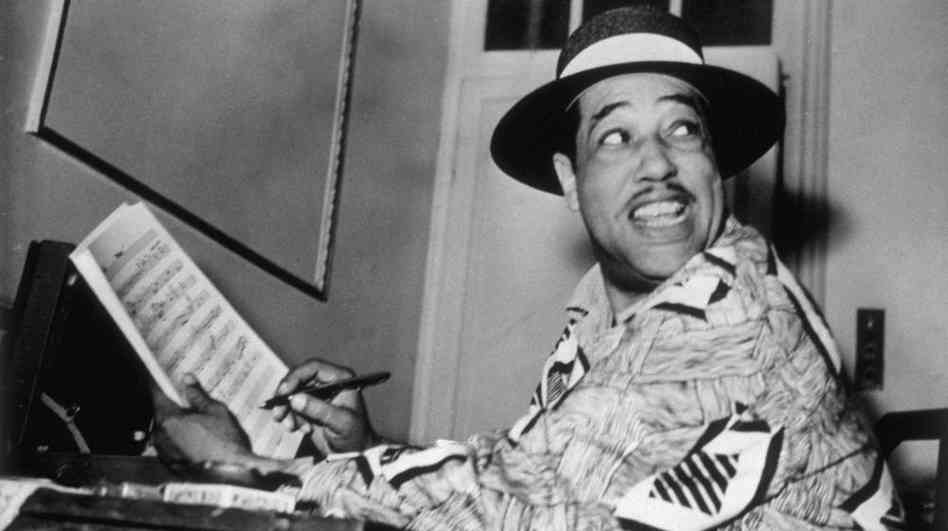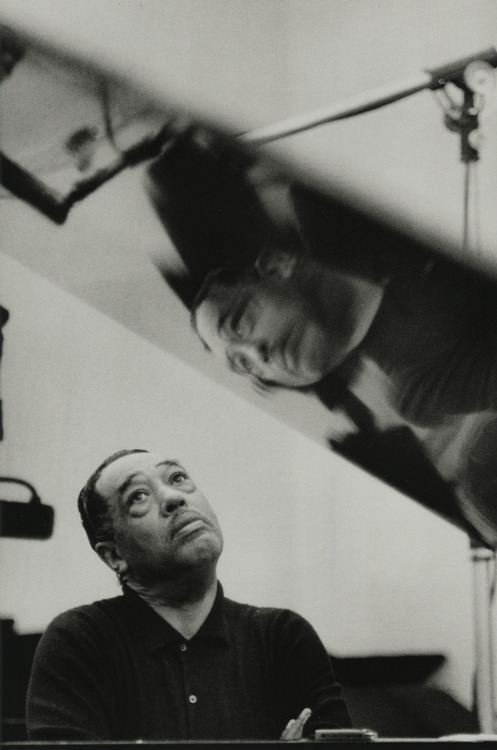At 183,700 words, Duke: A Life of Duke Ellington is my longest and most complex book to date. Yet it never occurred to me that Duke would be so much harder to edit than Pops: A Life of Louis Armstrong, whose manuscript ran to 155,000 words, about sixteen percent shorter than Duke. Those thirty thousand additional words made a much bigger difference than I’d expected.
 I just finished combing through the entire manuscript of Duke twice in a row, and I uncovered numerous typos, errors, solecisms, redundancies, and omissions of various and sundry kinds. None of them, I’m relieved to say, was horrendous. (I got all of those blunders out of the book when the Ellington scholar Steven Lasker fact-checked the manuscript in December.) Nevertheless, they’re still mistakes, and I found each one to be individually exasperating.
I just finished combing through the entire manuscript of Duke twice in a row, and I uncovered numerous typos, errors, solecisms, redundancies, and omissions of various and sundry kinds. None of them, I’m relieved to say, was horrendous. (I got all of those blunders out of the book when the Ellington scholar Steven Lasker fact-checked the manuscript in December.) Nevertheless, they’re still mistakes, and I found each one to be individually exasperating.
No, I’m not going to share any of them with you. A biographer has his pride. But the fact that they’re there–or, rather, were there–embarrasses me no end. It also makes me wonder whether other biographers go to a similar amount of trouble to polish their manuscripts.
The vast majority of the changes that I’ll be making after Lauren Marino of Gotham Books sends me back the copyedited manuscript of Duke, after all, are finicky little fixes whose sole purpose is to improve the book’s style. Earlier this morning, for instance, I changed “And while their leader sounded nervous when speaking from the stage…” to “And while their leader sounded nervous on stage…” That’s obviously not a significant change, but it really does make that sentence sound a tiny bit better.
Do such niceties matter to the average biographer? Somehow I doubt it, especially after having reviewed at least a hundred-odd biographies, most of which were unstylishly written and a fair number of which contained sentences so tin-eared that I wondered how any self-respecting author–or publisher–could have let them get into print.
Not long after I sent in the manuscript of Pops, I wrote a nuts-and-bolts posting about the process of writing the book in which I made the following claim:
I’ve sought to write a narrative biography of Armstrong that is comparable in seriousness and scope to such “definitive” high-culture biographies as W. Jackson Bate’s Samuel Johnson, George Painter’s Marcel Proust, or David Cairns’ Berlioz. Next to no popular-music biographies have aspired to the high standards set by these books, but it seemed self-evident to me that Louis Armstrong was a figure of similar artistic and cultural significance, and so deserved to be written about in the same way.
 I applied the same standards to Duke, and there was never a moment when I was unaware of the fact that I was writing about a great artist. It’s always seemed to me that when you write about somebody who makes beautiful art, you should try to write beautifully. If you don’t, there’ll be an inescapable incongruity between the masterpieces that are your ultimate subject matter and the way in which you describe how they came into being.
I applied the same standards to Duke, and there was never a moment when I was unaware of the fact that I was writing about a great artist. It’s always seemed to me that when you write about somebody who makes beautiful art, you should try to write beautifully. If you don’t, there’ll be an inescapable incongruity between the masterpieces that are your ultimate subject matter and the way in which you describe how they came into being.
That’s a hard mark to hit when you’re writing about the man who composed “Ko-Ko,” and I wouldn’t dream of claiming that my book is anywhere near as beautiful as Duke Ellington’s music. What I hope is that it’s worthy of its subject.
Here’s a paragraph from Duke that I didn’t change at all when I copyedited the manuscript:
In 1965 he complained that most Americans “still take it for granted that European music–classical music, if you will–is the only really respectable kind….jazz [is] like the kind of man you wouldn’t want your daughter to associate with.” He sought the same respect for his own music, in which the seeming contradictions of his background, part bourgeois and part street, were productively embodied. From “Black and Tan Fantasy” to Black, Brown and Beige, he had sought to fuse the nostalgic sentimentality of his mother’s beloved salon ballads with the blunt sexuality of the blues. He longed to make a lady out of jazz–even though she was already his mistress. That was why he brought her to Carnegie Hall. He had something to prove.
While this passage may strike you as a bit purple, it’s representative of what I was trying to do. If you don’t like it, you won’t like Duke. If you do…well, there’s plenty more where that came from.
* * *
Duke Ellington’s “Ko-Ko,” recorded in 1940:
